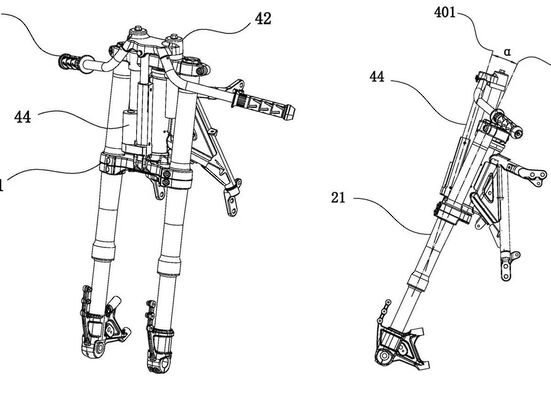LESOTHO has latent potential to transform its economy despite the myriad socio-economic challenges it faces.
With a weak private sector and limited financial inclusion, many micro, small, and medium-sized enterprises (MSMEs) struggle to access the financing they need to thrive.
Recognising the urgency of these challenges, the government of Lesotho, with the support of the World Bank, embarked on a transformative journey that led to, among other financial sector reforms, the development of a Secured Transaction System.
The initiative is part of the Competitiveness and Financial Inclusion Project (CAFI), which aims to bolster economic growth by fostering a more robust private sector.
Central to this effort was the policy for secured transactions, a groundbreaking concept that allows businesses to use movable and intangible assets as collateral for loans.
This not only increases the potential for securing financing but also makes lenders more willing to extend credit to businesses that may previously have been deemed too risky.
The road to implementing this new policy was anything but smooth.
The Ministry of Finance and Development Planning, the Central Bank of Lesotho and Parliament faced numerous hurdles as they sought to understand and adopt this new framework.
The complexity of the concept, along with the need for buy-in from various stakeholders, meant that the foundational policy and the corresponding Bill went through several iterations before finally being passed into law in 2020.
The legislation, known as the Security Interest in Movable Property Act, 2020 (SIMPA), along with its regulations, has therefore been effective since 2020 and has led to the establishment of the Lesotho Registry of Interest in Movable Assets (LERIMA).
Because of the law individuals and companies can register their movable assets in the registry. For instance, they can register TVs, laptops, cars and livestock.
Because the asset is secured and its value known, they can be used as collateral for loans.
The importance of a secured transaction law cannot be overstated.
In countries around the world, such as Kenya and Uganda, similar laws have led to significant improvements in access to finance for MSMEs.
For instance, in Kenya, the establishment of a collateral registry allowed businesses to leverage their assets for loans, leading to a significant increase in lending to small enterprises.
According to reports, the number of registered loans in Kenya surged, providing much-needed capital for businesses to grow and create jobs.
In Kenya, the law was enacted in 2010, and by 2021 over US$1.5 billon in loans had been issued as a result of the collateral registry.
Ghana, on the other, launched their collateral registry in 2018, and by 2021, the registry helped unlock approximately $500 million in loans, significantly boosting financial inclusion in the country.
Other success stories include jurisdictions such as Liberia, Colombia, Mexico, China, Vietnam and many more.
Lesotho’s newly established collateral registry (LERIMA) aims to replicate this success. T
o date, the registry has unlocked loans in excess of M2 billion.
By allowing businesses to register their movable assets such as equipment, inventory, accounts receivable – even intangible assets like trademarks as collateral, the registry creates a transparent system that lenders can rely on.
Once the asset is registered, a bank will not be sold before the loan is cleared.
In the same manner, the bank cannot confiscate it willy-nilly.
The value of the asset is known to the lender and the creditor, which ensures that the interests of both parties are protected.
This not only reduces the risk for financial institutions but also empowers entrepreneurs by giving them more options for securing funding.
As Lesotho sets out on this new path, the task ahead for CAFI is to ensure that the collateral registry is effectively utilised.
This involves building capacity within the Central Bank of Lesotho, private financial institutions, and microfinance institutions, as well as educating the public about the benefits of the registry.
By promoting widespread use of this new vehicle for enhancing access to finance, Lesotho aims to strengthen its credit infrastructure and support the growth of its private sector.
This initiative is being complemented by continued CAFI technical assistance to the Central Bank of Lesotho to strengthen the country’s credit infrastructure, notably by improving the credit reporting system and providing assistance to the Ministry of Trade, Industry and Business Development in finalising the regulations for operationalisation the new Insolvency Law that came into effect on April 1 this year.
The journey is ongoing, but the government’s commitment to improving financial inclusion and supporting MSMEs is clear.
As Lesotho forges ahead, there is hope that the secured transactions law and the accompanying collateral registry will pave the way for a more prosperous future, enabling countless entrepreneurs to access the financing they need to turn their dreams into reality.
With the right support and continued innovation, Lesotho could transform its economic landscape, creating a thriving ecosystem where businesses can flourish and contribute to the nation’s development.
As the world watches, Lesotho stands at the verge of a new era, one where financial inclusion is not just a dream but a tangible reality for all of her inhabitants.
Visit for more details.
Chaba Mokuku is the Managing Director of CAFI, a project funded by the World Bank and the Government of Lesotho.
MENAFN07072025000229011070ID1109770026







